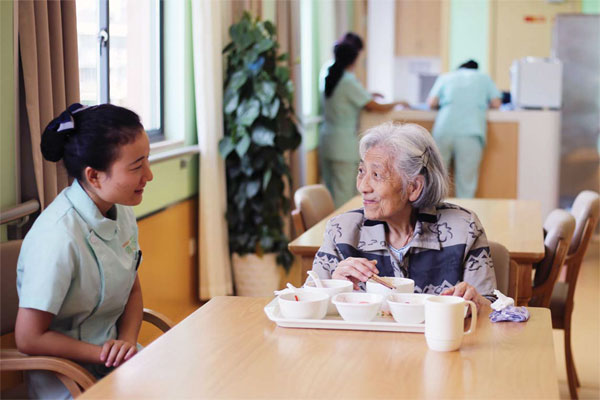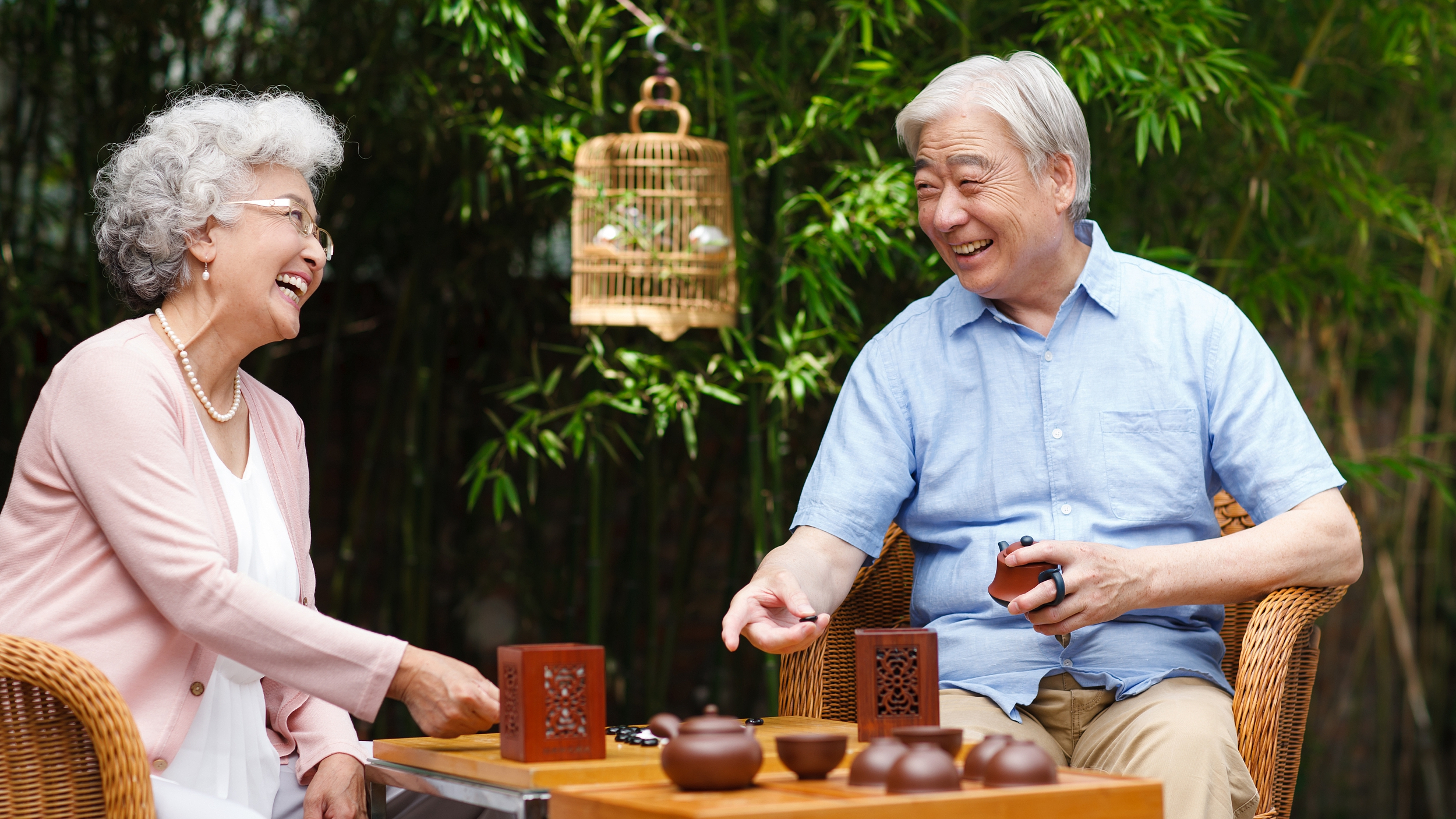
From the People's Daily App.
This is Story in the Story.
Wang Shaokang is a volunteer in the city of Nanjing with TimeBank, an online platform that connects volunteers with elderly people in need.
After seeing a request on the mini-app, Wang clicked "accept," then delivered a hot meal from a senior service center to the home of an elderly couple.
Although it only took 30 minutes, Wang can accumulate this time and cash it in for elderly care services in the future.
As a type of elderly care service featuring mutual assistance, the concept of timebanks was first introduced by American Edgar Cahn in 1980. Volunteers deposit their volunteer time in timebank apps, which can be traded in for elderly services, including food delivery, house cleaning and medical services, for themselves or their families in the future.
Today’s Story in the Story looks at some transformations happening in China as the country comes to grips with changing demographics, particularly an aging population.

An undated photo shows an elderly woman dining at a nursing home in Hangzhou, East China's Zhejiang province. (Photo: China Daily)
Statistics show there were over 249 million elderly people aged 60 or above in China as of the end of 2018, accounting for nearly 18 percent of the total population. The ratio of elderly people is expected to reach 25 percent by 2035.
Behind the huge number, there are many empty nesters and elderly facing difficulties, with a high old-age dependency ratio.
China has proactively responded to population aging since the end of the 20th century. A guideline was issued by the State Council earlier this year, supporting elderly care institutions to provide home-based services.
According to a survey from China Youth Daily in November, more than 65 percent of the 4,557 respondents said they would like to try timebanks, while nearly 15 percent were not interested and nearly 20 percent were on the fence.
Currently, timebanks have been piloted in Beijing, Nanjing, Chongqing, Chengdu and other cities, most of which operate on a community basis.
All over the world, there are more than 1,000 timebanks.
Nanjing has been experimenting with timebanks since 2012, with the number of registered volunteers reaching 26,000.
Amid its efforts to establish an effective system, Nanjing is also facing some difficulties, said Xu Wenzheng, director of the research office of the Party committee of the city's Jianye District. "For example, how do we ensure the transfer and exchange of volunteer time in multiple places after volunteers move out of the city?"

(Photo: CGTN)
In order to solve the problem, Jianye Timebank, a mini-app on Alipay co-operated by the Party committee of Jianye District and Ant Financial, was piloted in the district's Taoyuan community in October, allowing users to store their volunteer time and exchange services on Alipay. The whole process is recorded on the blockchain. The project was extended to the entire district on Nov. 20.
"The application of blockchain can ensure open and transparent storage and exchange of volunteer time, prevent 'time' loss and tampering, as well as enable cross-institutional and cross-regional exchange of services," said Wu Fang, a blockchain engineer with Ant Financial.
Meantime, an affluent aging population will be part of growing consumption engines in the next decade in China, which will use new technologies including 5G for retail development, say retail industry leaders.
Pei Liang, president of the China Chain Store and Franchise Association, estimated that in the next 10 years, about 258 million people, or 17.8 percent of the total Chinese population, will be aged above 65, and that they will be the beneficiaries of the country’s opening-up and reform policies.
"The new senior citizens will be a vast gold mine for retailers, which means that the coverage areas for physical stores will become smaller, pushing retailers to adapt their formats and create room for health products and services for elderly people," said Pei.
(Produced by Nancy Yan Xu, Brian Lowe, Lance Crayon and Paris Yelu Xu. Music by: bensound.com. Text from Xinhua, China Daily.)


